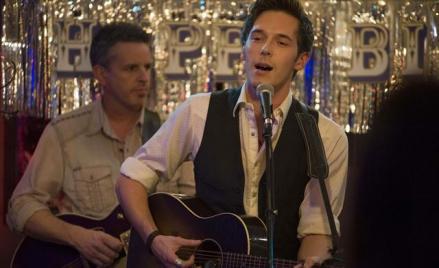Death crept into Nashville last week. It slid under a white sheet and lay waiting at the morgue for Gunnar to find it, after he and Scarlett wowed a star-packed audience at Deacon’s surprise party with a ballad called, appropriately, “I Will Fall.”
There was death and also water. “ I see the water washing over you,” sang Juliette in her enormous, echoey new house. “We are water, we flow and flow.” Donate, Jolene’s addiction counselor, listened from the doorway—and then he asked the young artist why she didn’t seem invested in helping her mother get “clean.” Water became something vast, capable of covering, dissolving—and purifying. In their last interaction before Jason was murdered, Gunnar and his brother stood on a bridge, and Gunnar threw his brother’s gun into the Cumberland River.
“Pour me something stronger than me,” Rayna begged Deacon at the Bluebird, in a song. (We know the song is special because we saw Rayna composing it at the piano, in a moment of emotional extremity, and because she asked Watty White over to hear it when she finished.) Things stronger than Rayna in that scene included her love for Deacon and her devastation at the public unraveling of her marriage. But in the context of the show in general, the stronger something could just as easily have been alcohol, which drags Jolene under after weeks of sobriety, or the helpless sense of filial responsibility that prompts Juliette to desert a soiree she spent the episode planning, or the death waiting for Gunnar under the white sheet.
Indeed, much of what the Nashville universe pours out for its characters seems stronger than they are. I wouldn’t describe Rayna, Juliette, Gunnar et al. as weak, but the show has a way of flooding them with experiences that leave them lost and overwhelmed. The AV Club describes Nashville as a “show where nothing happens,” but this isn’t exactly right: Enormously significant things happen to the characters all the time—the characters just don’t wield a lot of agency. They almost seem to spend the series trapped in one of the dream ballet sequences from musical theater, reliving and reflecting on and elaborating what has come before, wondering what’s next.
What is next for Nashville? We don’t even know when the season will end, let alone how. But the show’s mood is undergoing a sea change, from frothy and bright to lyrical, forlorn and elemental. The water is wide. We cannot get o’er.
